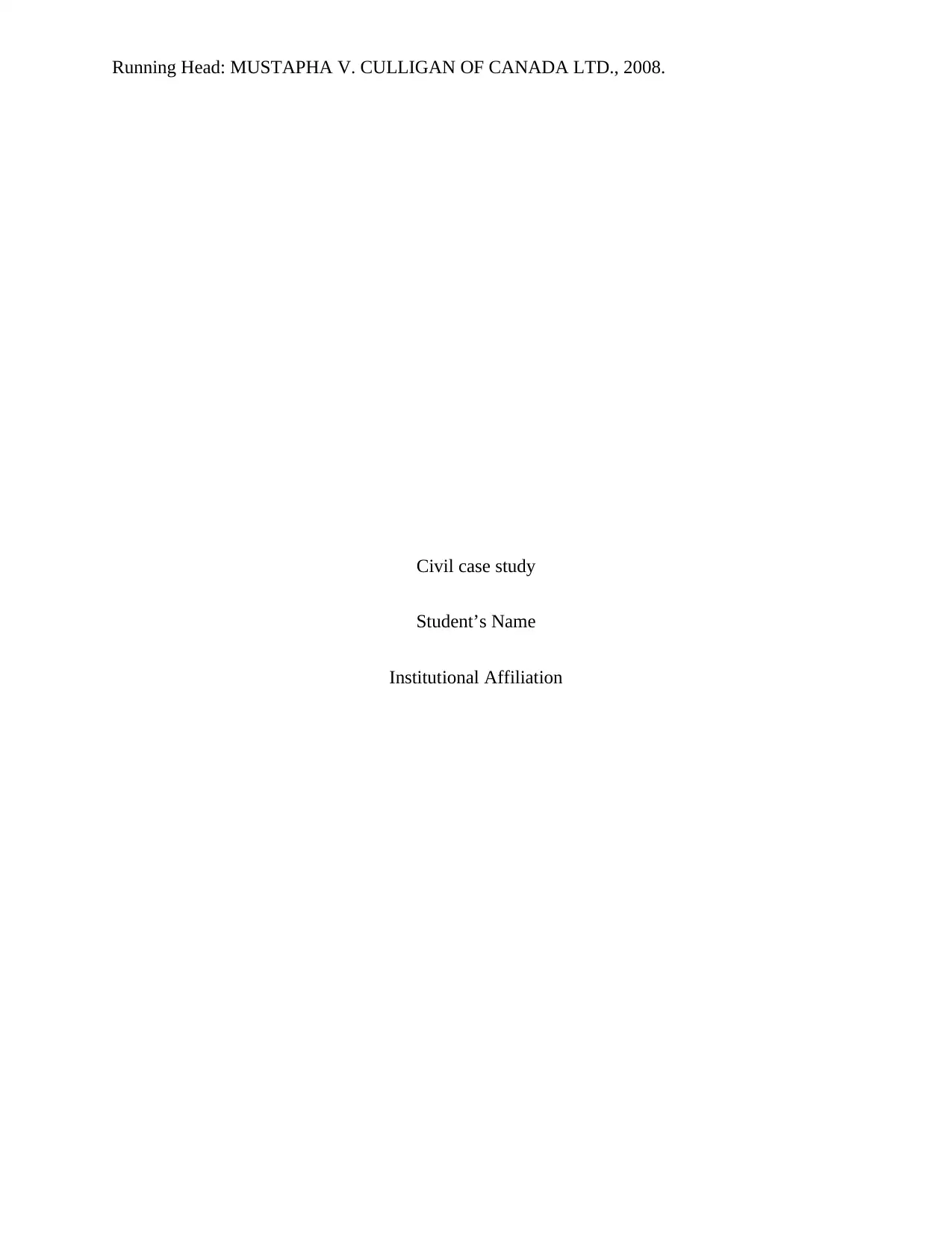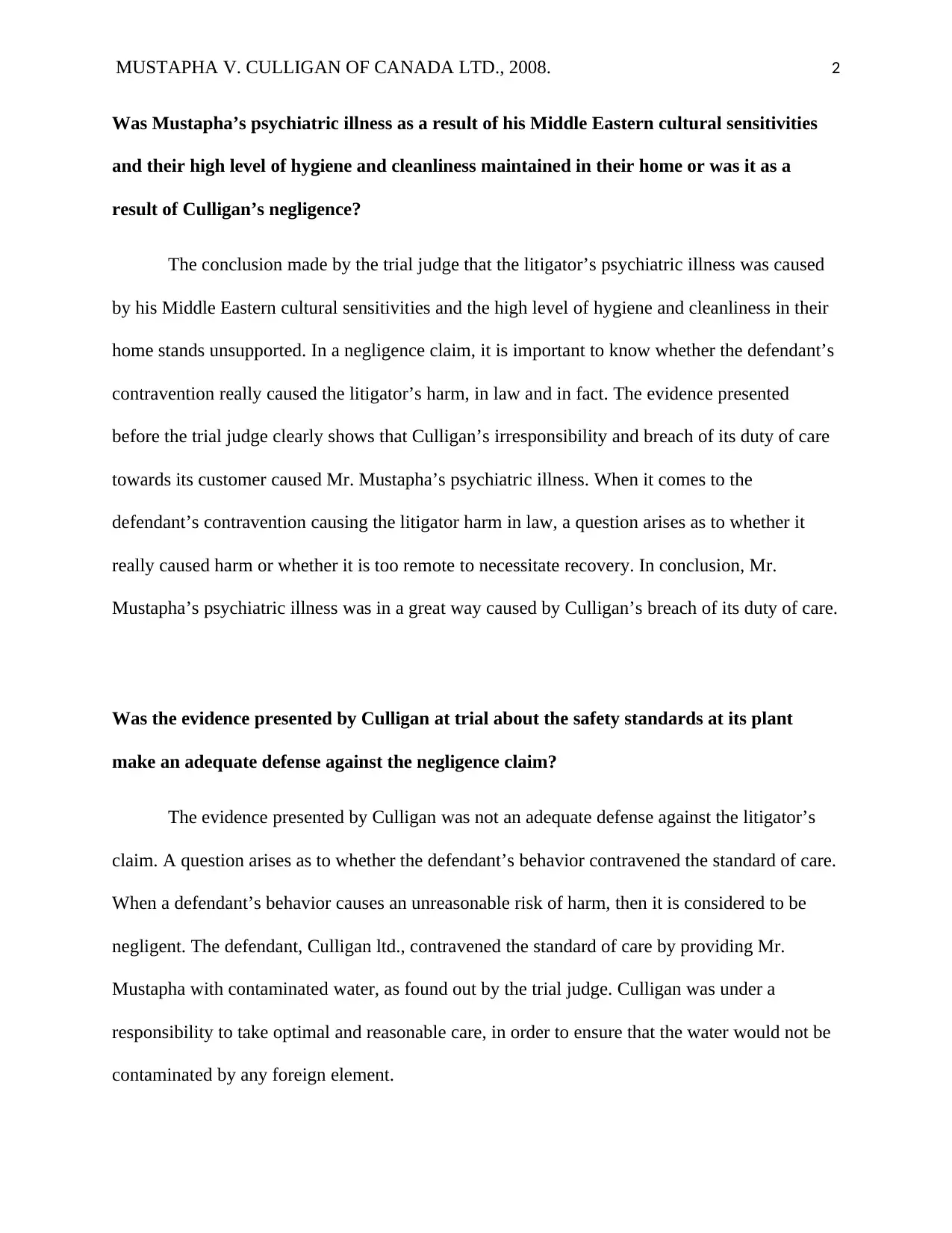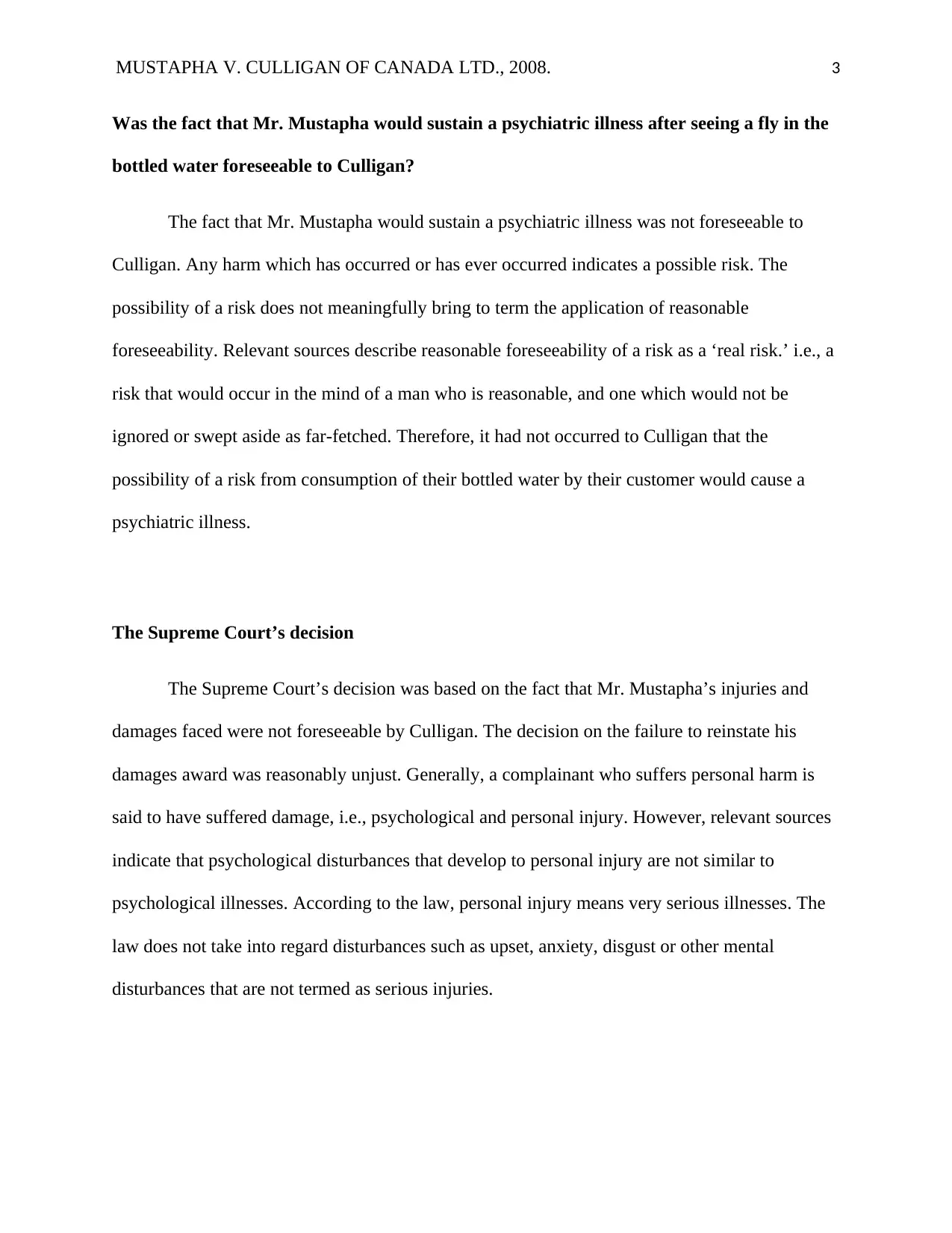Civil Case Study: Analysis of Mustapha v. Culligan of Canada Ltd. 2008
VerifiedAdded on 2022/07/27
|3
|634
|39
Case Study
AI Summary
This case study analyzes the civil case of Mustapha v. Culligan of Canada Ltd. (2008). The case revolves around Mr. Mustapha's claim of psychiatric illness resulting from finding a dead fly in a sealed bottle of Culligan water. The analysis addresses key legal questions: whether Culligan's negligence caused Mustapha's illness, the adequacy of Culligan's defense based on safety standards, and the foreseeability of psychiatric illness. The analysis also examines the Supreme Court's decision, which focused on foreseeability. The provided solution argues that Culligan breached its duty of care, and that the Supreme Court's decision was unjust. The case study highlights the importance of duty of care, negligence, and the concept of reasonable foreseeability in determining liability for psychological harm. The document concludes with a personal opinion on whether justice was served.
1 out of 3









![[object Object]](/_next/static/media/star-bottom.7253800d.svg)